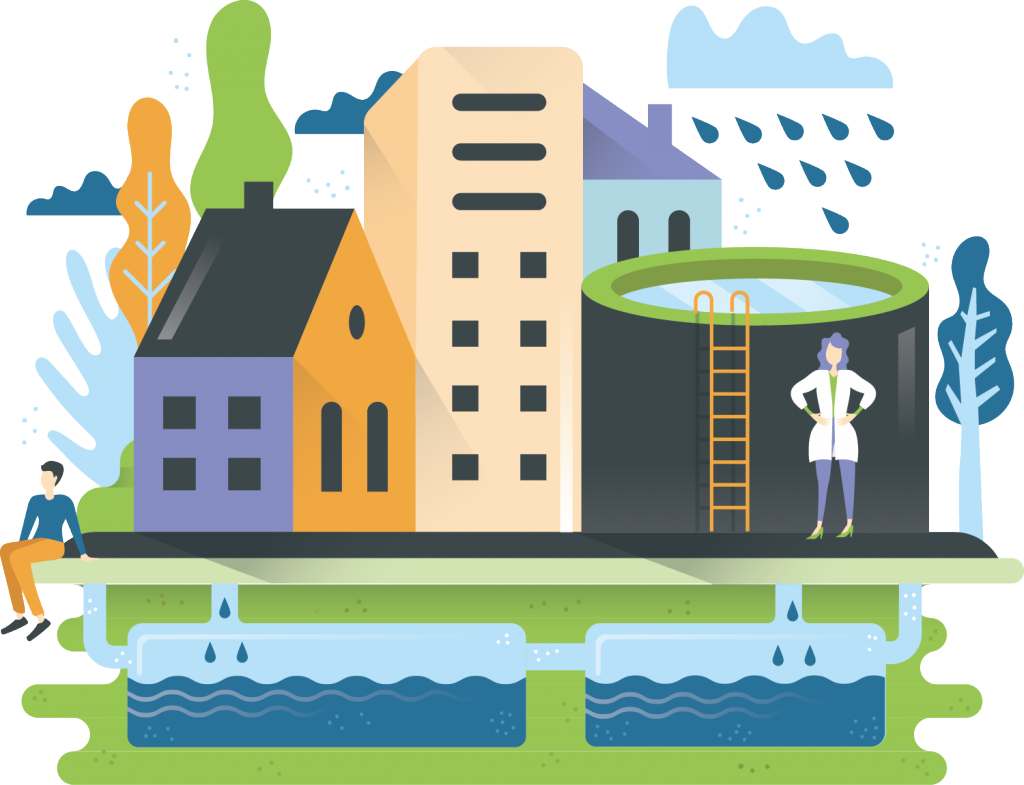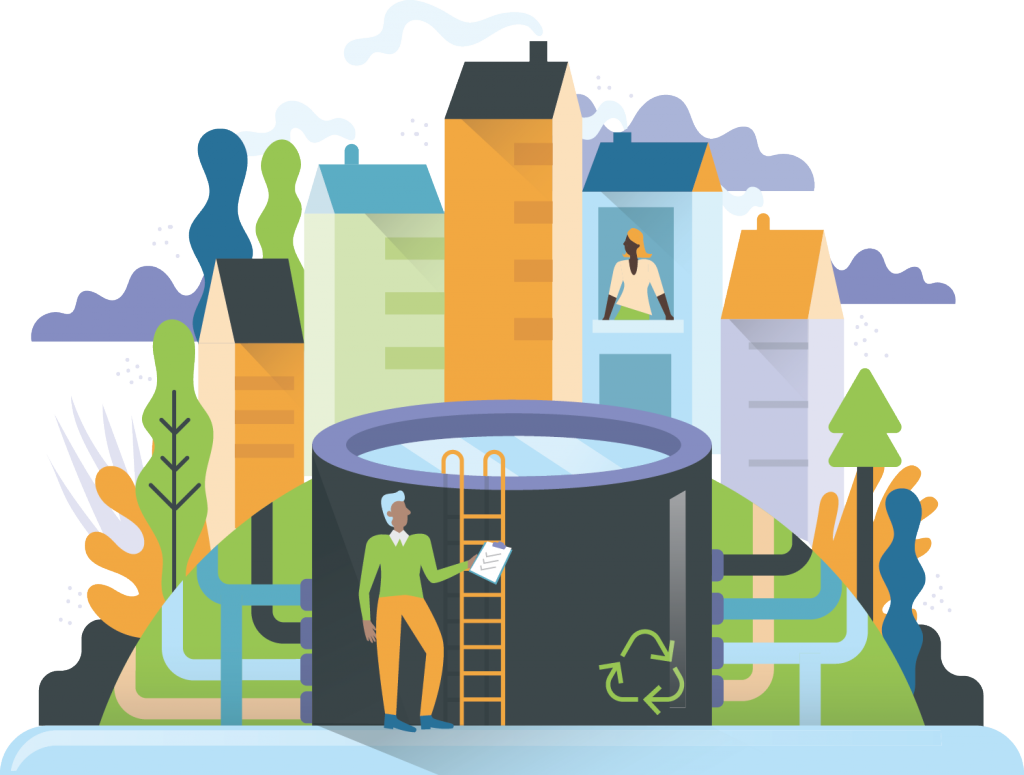Wastewater treatment can involve physical, physico-chemical, and biological processes, and in any combination thereof. The exact treatment configuration for both the water and sludge lines and how they are operated will dictate the energy and GHG emissions of the treatment plant. As wastewater treatment plants are also in effect resource recovery facilities, the extent to which resources, such as water, biogas, nutrients, and other materials, are recovered, will also influence the energy and GHG emissions from wastewater treatment. Although potentially resulting from several different factors, including of course the type of wastewater treatment configuration and how it is operated, energy and/or GHG emissions from wastewater treatment will be related to the following:
- Process equipment energy requirements (pumping, aeration, solids handling).
- Energy recovered from the organic matter and heat in wastewater.
- Building energy requirements for lighting and Heating, Ventilation and Air Conditioning (HVAC).
- Direct GHG emissions (methane and nitrous oxide) from biological processes in the treatment plant, as well as outside of the treatment plant (receiving waters and sludge land application sites).
- GHG emissions from truck fuel consumption in sludge disposal or chemicals delivery.
- Energy source (renewable, fossil fuels, grid energy mix).
| Impacted by: | Impacts: |
|---|---|
| Wastewater Collection The distance and elevation of the wastewater treatment facilities dictates whether wastewater needs to be pumped (as opposed to gravity flow). | Wastewater Collection The wastewater treatment energy depends on the volume and concentration of the water collected. Collection systems with high infiltration and rain water collection lead to less efficient treatment. Collection systems with long detention times allowing for anaerobic organic matter decay, may lead to the use of chemicals in the treatment to ensure nitrogen removal. |
| Reuse Water Treatment Recycled water treatment can be impacted by wastewater treatment because the amount of wastewater to be recycled will depend on the amount of wastewater generated. The recycled water treatment system design and energy consumption is generally influenced by the amount and quality of source water available from wastewater treatment plant effluents. | End users The wastewater treatment energy depends on the volume and concentration of the water collected, as well as the total organic and nitrogen load. The energy recovery potential is proportional to the organic load. End users using excessive amounts of water may dilute the wastewater. End users using garbage disposal for organic kitchen waste will increase the concentration of the wastewater and the total organic load. |
| Wastewater Discharge The distance and elevation difference between the wastewater treatment and discharge impacts the energy requirements or recovery potential. Furthermore, if there is no wastewater treatment, then the direct GHG emissions resulting from the direct discharge to receiving waters range between 30 and 45 kg/pers.year. | |
| End users (Semi-)Centralized wastewater treatment may require the end users to have individual pretreatment (septic tanks or advanced pretreatment for industries), which may impact water usage and energy requirements. |

